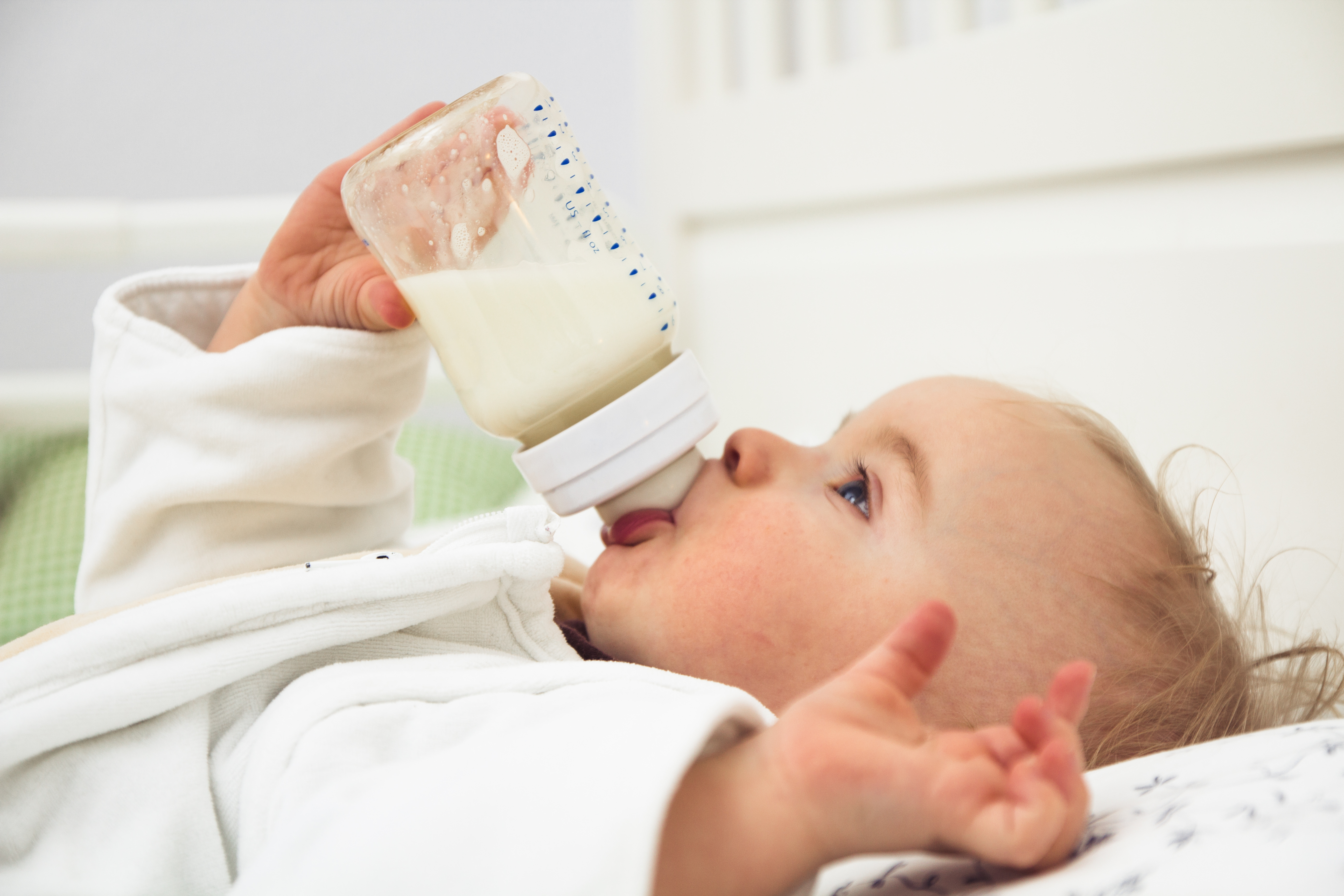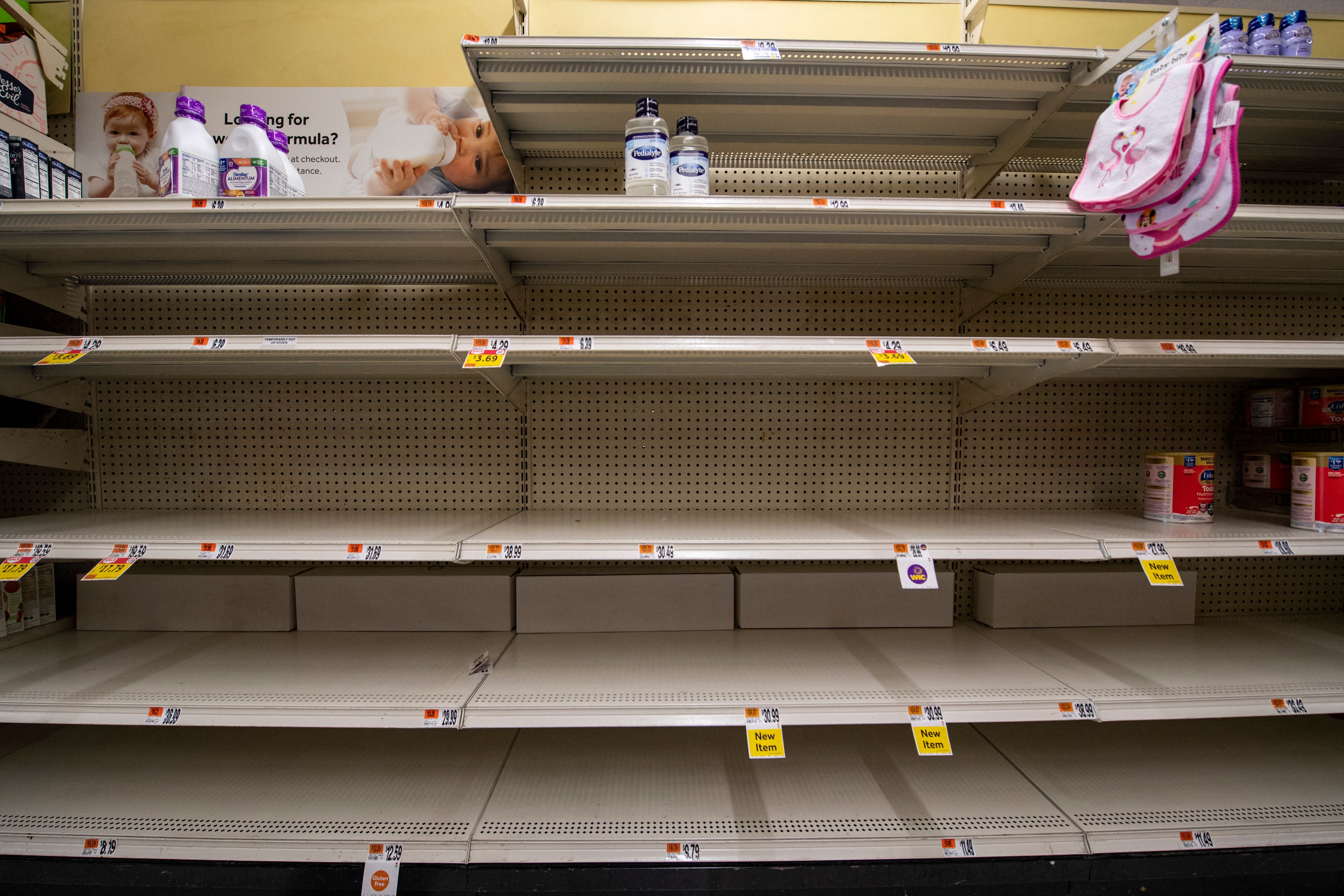A Formula for Success
News Based on facts, either observed and verified directly by the reporter, or reported and verified from knowledgeable sources.
As the baby formula shortage continues, grassroots groups form to meet the challenge

Good morning! Today is Monday, May 30, and you are reading today’s section of Examiner+, a digital newsmagazine serving Westchester, Putnam, and the surrounding Hudson Valley.
Need to subscribe — or upgrade your Examiner+ subscription to enjoy full access to all of our premium digital content? Take advantage of our special FREE TRIAL OFFER.
Take Examiner+ on a test drive today at NO CHARGE for a full month. Enjoy full membership-level access to all of our premium local content, delivered straight to your inbox six times a week.
Please take our brief Reader Survey to help us serve you better (CLICK HERE or see the link at the end of the story)

Alise Masterson, a Valhalla resident and mother of two, recently began to notice that the baby formula she feeds her nine-month-old son, Similac Pro-Advance, was becoming less and less available before it disappeared from the shelves altogether.
The formula was one of many powdered infant formulas recalled by manufacturer Abbott Nutrition in February 2022 after four infants were hospitalized with a bacterial infection connected to formulas produced at a facility in Sturgis, Michigan.
The recall — compounded with pandemic-related supply-chain issues and ingredient shortages — has led to an unprecedented baby formula shortage in the United States.
As a result, many parents of young children like Masterson have been met with barren shelves and backorders on online retailers. Experiencing this challenge first-hand, Masterson began talking to other friends and inlaws in the area who also have babies.
“I was like, ‘Are you not able to find this? Are you not finding that?’” Masterson recalls. “We all started noticing it at the same time. Then we were like, ‘This is a real problem.’”
Realizing that many other parents in the Westchester area were likely struggling too, Masterson, along with Jennifer Lynch, a neonatal nurse, set up a Facebook group called Westchester Formula Finders.
Masterson and Lynch previously worked together as COVID Angels, a volunteer effort that helped thousands of Greenburgh residents secure vaccine appointments last year.
The Facebook group is dedicated to helping parents, families, and caregivers find the formula they so desperately need to feed their young children as the shortage continues.
Created on May 13, the group now has roughly 1,500 members of individuals looking for formula or people in the community who are willing to help — some offering to go on the hunt from store to store for families who cannot do so themselves.
Masterson was luckily able to switch her son over to a generic formula available at CVS, but she says the formula shortage has been extremely stressful on parents.
“There have been moments of panic and relief and then panic and relief when you find the next container [of formula],” Masterson explains. “When your baby relies on one type of food to sustain them and then, all of a sudden, that’s not available; it’s really scary.”

Merav Gur, an Ardsley resident and clinical psychologist, says the formula shortage has increased stress and post-partum mental health struggles for parents and guardians, especially those who are already more vulnerable and have less familial or financial support.
Based on feedback she received from Ardsley parents and patients who found it highly stressful to chase after available formula themselves, Gur, collaborating with Greenburgh Supervisor Paul Feiner, created an infant formula initiative in Arsdley.
“People [experiencing] formula shortages can contact Paul or me, and then we will go find a formula with a group of volunteers and deliver it to them,” Gur says. “Or if they’re local, they can pick it up from us.”
In an effort to take advantage of preexisting supplies, Gur and volunteers have encouraged families to search their homes for formula samples, which are often given to expecting parents. Many ultimately do not use them for a variety of reasons, ranging from being able to breastfeed, using a different formula, or their baby having an allergy to the samples they were given.
Feiner put a collection box at Greenburgh Town Hall where families can drop off unused samples to be dispersed to families in need of those specific brands. With samples alone, Gur says they were able to feed ten babies in the area for a couple of weeks.
“The issue is that the shortage continues, so whatever supply we had, we gave away,” Gur adds.
At this time, Gur encourages all families to continue checking their homes for any samples they may have, which can help other families in need. Additionally, Feiner and the team of volunteers are working to connect families with volunteers who can look for available formulas in stores.
Gur explains that many families relied on online retailers to purchase their formula before the shortage. Now, sites like Amazon and Target are all experiencing extreme backorders. When some formulas do become available online, they sell out within minutes. Others, such as Enfamil NeuroPro Gentlease, remain extremely hard to find.
“Parents don’t want to bring COVID home to their infants, so they were relying on Amazon or Target deliveries,” Gur says. “[Now] you have to really chase after it, which is not okay.”
Gur says the formula shortage has also exacerbated feelings of guilt, shame, and judgment many new parents who are unable to breastfeed feel.
“I think as a community, we need to move away from that [judgment] and understand that breastfeeding is a privilege,” Gur underscores. “Many had to go back to work fairly quickly after their baby was born, don’t have the jobs where they have the flexibility to pump or have a medical or mental health issue that makes it difficult to breastfeed.”
“I’m hoping that out of this experience, we can stop judging families for how they choose to feed their baby,” Gur adds. “Sometimes, it’s not a choice.”
Masterson highlights that the formula shortage has been a crisis felt most by those of lower socioeconomic status, especially parents who rely on WIC benefits.
“It’s not an even playing field for anyone who pops onto the [Facebook] group,” Masterson says. “Some people can get down to one side of Westchester and back [for formula], and it is not a financial hardship, but other people aren’t in that position.”
Masterson adds that being active in the Facebook group itself is a luxury not all parents have.
“The amount of time it takes to find exactly what you need but then to say, ‘Okay, it’s located in Yonkers, but you’re in Greenburgh,’” Masterson says, explaining that high gas prices and transportation access may make it more difficult for some parents compared to others.
“We’re doing the best we can, making arrangements for people personally delivering it or having volunteers offer to do that, but it’s a bigger issue,” Masterson says.
Feiner says the success of the Formula Finders Facebook page, as well as the Arsdley infant formula initiative, demonstrates the ability to use a program like the COVID Angels as the blueprint and adapt it to address a challenge residents are currently facing.
“Last year, we had residents who took charge of the lack of vaccines, and now they’re applying the skills that they used from that for this effort,” Feiner says. “This is a way for the community to take action on their own.”
“It’s very inspiring,” Feiner adds.
Abbott plans to resume production at its Michigan plant on June 4. The company has said it will take six to eight weeks for its formula to arrive in stores once production restarts. Food and Drug Administration (FDA) Commissioner Dr. Robert Califf recently told lawmakers it will take until July before shelves across the country will be restocked with formula.
In the meantime, the FDA has eased import restrictions, allowing foreign manufacturers to send formula to the United States.
Earlier this month, the House of Representatives passed a $28 million emergency spending bill to address the nationwide shortage. All House Democrats supported the legislation, while all but 12 Republicans voted against it.
If you’re a parent or caregiver who needs help finding baby formula, you can email Greenburgh Supervisor Paul Feiner at pfeiner@greenburghny.com. Join the Formula Finders Facebook group here.
Bailey Hosfelt is a full-time reporter at Examiner Media, with a special interest in LGBTQ+ issues and the environment. Originally from Connecticut and raised in West Virginia, the maternal side of their family has roots in Rye. Prior to Examiner, Bailey contributed to City Limits, where they wrote about healthcare and climate change. Bailey graduated from Fordham University with a bachelor’s in journalism and currently resides in Brooklyn with their girlfriend and two cats, Lieutenant Governor and Hilma. When they’re not reporting, Bailey can be found picking up free books off the street, shooting film photography, and scouring neighborhood thrift stores for the next best find. You can follow Bailey on Twitter at @baileyhosfelt.
TELL US WHAT YOU THINK! TAKE OUR BRIEF READER SURVEY NOW
Please help us serve you better by completing this brief, four-minute survey.
We’d love to know your thoughts and opinions on what you like, what you’d like to read more about, and how we can do better.
CLICK HERE to take our survey or visit
www.surveymonkey.com/r/ExaminerPlus
Examiner Media is a proud participant in The Trust Project.
CLICK HERE to review our best practices and editorial policies.
This piece is a news article. CLICK HERE to learn about our definitions for types of stories.
We welcome corrections, story ideas, and general feedback. CLICK HERE to use our actionable feedback form.

Examiner Media – Keeping you informed with professionally-reported local news, features, and sports coverage.



